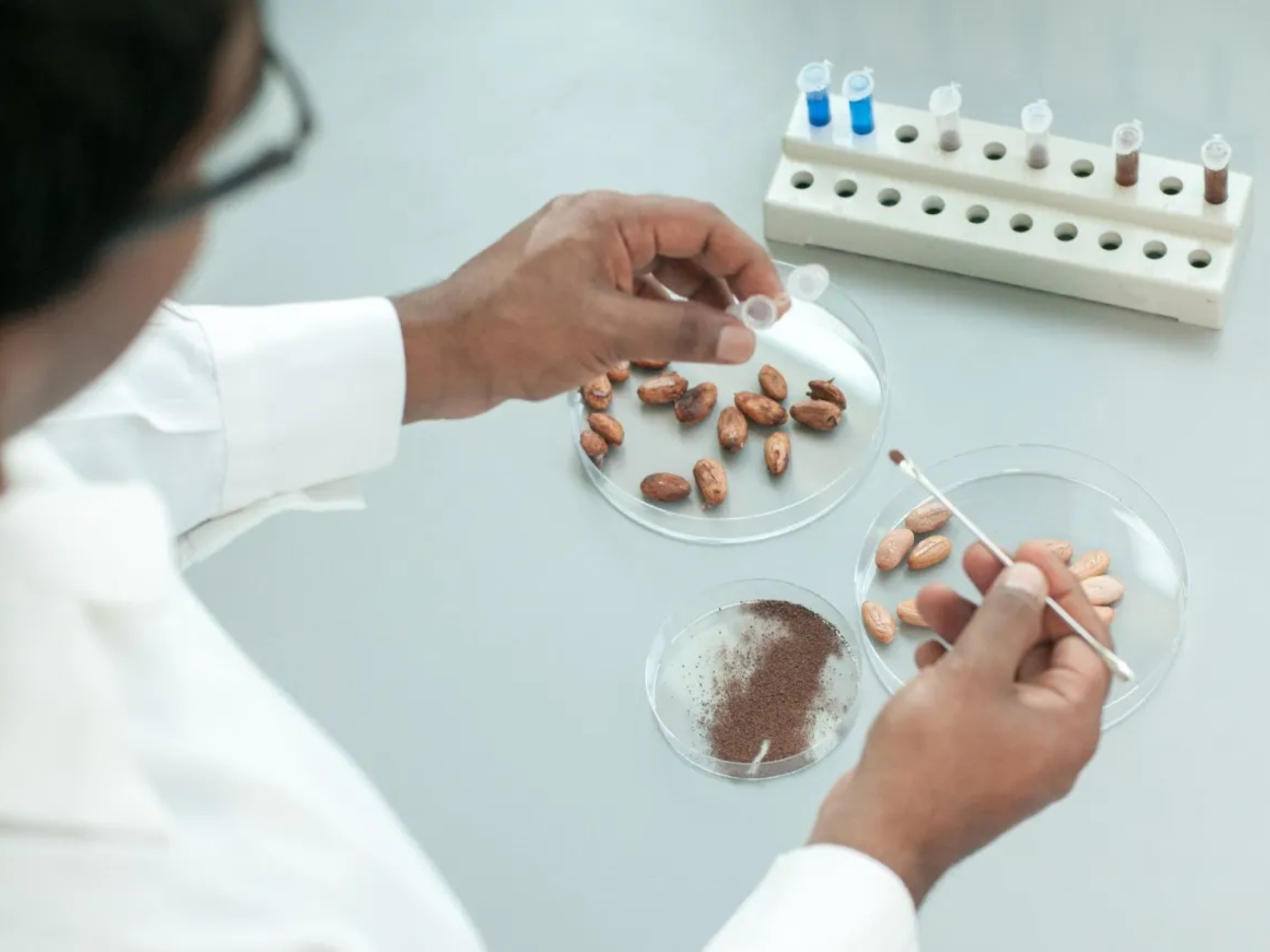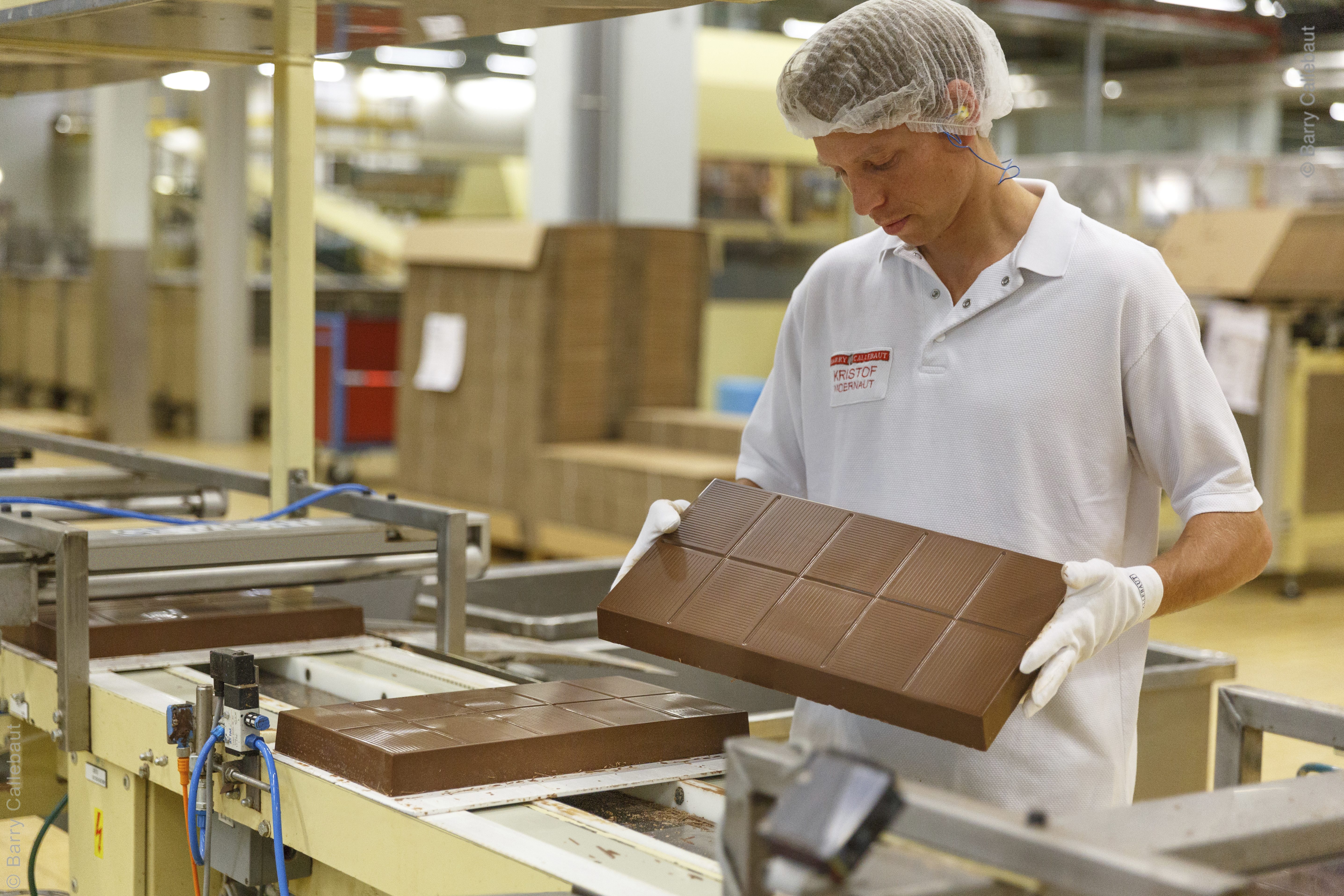
Barry Callebaut, the leading supplier of chocolate to the food industry, has signed a partnership to explore cell culture technology for cocoa alternatives.
With the cocoa industry keenly feeling the effects of climate change on their supply chains and bottom lines, the world’s largest chocolate supplier is looking to cellular agriculture as a solution.
Swiss manufacturer Barry Callebaut has teamed up with the Zurich University of Applied Sciences (ZHAW) to explore the potential of cell-based chocolate, after climate shocks and rising cocoa prices caused a 6% drop in volume sales over the last nine months.
Cellular agriculture has the potential to drastically reduce emissions, resource use, water consumption, and land use. By culturing cocoa cells in bioreactors, chocolate producers don’t have to rely on unpredictable land, soil and weather conditions.”
“This partnership reflects our proactive approach to building innovation capabilities that will shape the future of chocolate,” said Dries Roekaerts, president of customer experience at Barry Callebaut.
Cell culture tech will futureproof Barry Callebaut’s cocoa supply

The deal combines Barry Callebaut’s chocolate prowess with the scientific know-how of ZHAW professors Tilo Hühn and Regine Eibl-Schindler, who are experts in cell culture technologies. The teams bring decades of experience and a strong portfolio of scientific publications to the project.
While the partnership is still in its early stages of development, Barry Callebaut highlighted that cell cultivation can allow it to develop new chocolate products with unique flavour and enhanced health benefits.
The technology also provides an alternative cocoa source to diversify its portfolio, while boosting its supply chain resilience and supporting traditional cocoa farming communities.
To that point, Roekaerts noted that the chocolate manufacturer isn’t looking to eliminate conventional cocoa from its portfolio. “We are not replacing cocoa from farms, but rather preparing for a future where we can offer consumers additional choices and ensure long-term supply security,” he said.
“Our research into cocoa cell culture technology opens up exciting possibilities for sustainable innovation in the chocolate industry,” Hühn and Eibl-Schindler said in a joint statement. “With Barry Callebaut’s support, we’re able to accelerate our scientific exploration and bring academic insights closer to real-world applications.”
Alternative cocoa heats up

Barry Callebaut’s focus on alternative cocoa comes after a year when cocoa prices have broken all-time records, thanks in large part to the climate crisis. Global cocoa stocks have slumped to their lowest in a decade. Plantations in Ivory Coast and Ghana – the two largest producers – are the hardest hit due to extreme weather and crop diseases.
In fact, scientists have warned that cocoa trees are threatened, and a third of them could die out by 2050, which could lead to a global chocolate shortage. Meanwhile, only beef emits more greenhouse gases than dark chocolate, while a bar of chocolate requires 1,700 litres of water to produce on average.
Barry Callebaut already offers cocoa alternatives, using precision-fermented sunflower seeds for some of its offerings in Europe. “Our non-cocoa solutions from precision-fermented sunflower seeds offerings… expand the portfolio of Barry Callebaut and offer all the variety of chocolatey experiences for our customers,” CEO Peter Feld said in an earnings call earlier this year.
Cell-based cocoa is emerging as a viable and scalable solution, having also attracted investment from Lindt & Sprüngli and Sparkalis (the VC arm of bakery and confectionery group Puratos). Startups in this space leveraging cellular agriculture include US-based California Cultured, Israel’s Celleste Bio and Kokomodo, and Swiss firm Food Brewer.
Others, meanwhile, are using fermentation to turn lower-carbon ingredients and food industry byproducts into cocoa-free chocolates, such as Planet A Foods, Compound Foods, Voyage Foods, Prefer, Foreverland, Nukoko, and Endless Food Co.
The post Climate Shocks Push World’s Largest Chocolate Supplier to Explore Cell-Based Cocoa appeared first on Green Queen.
This post was originally published on Green Queen.